It was a slow day in the clinic. We’re making little packets of a toothbrush, toothpaste, soap, and a disposable razor for the migrants to use when they land here after days of grime and sweat in the desert. There is plenty of sweat right here in this little cell-block of a clinic. 100 degrees, 70% humidity, huge cumulus clouds developing in the South, and the clickety click of a fan trying its best. I dream of rain and relief.

our taxes at work
Two guys walk in , each holding the other up. They have been shot. One fellow shows us his thigh. The bullet has passed through his leg. The fact that it didn’t hit his femoral artery is grace from above. The other guy still has a bullet in his butt—and he seems the stronger of the two! The leg-wound guy is septic; he is glassy-eyed, delirious, feverish, and a bit out of his head with pain. He was shot “eight days ago on a train in Sinaloa.” Bandits attempted to steal their stuff (what stuff??). The men are from Honduras, and are trying to get to Oregon. Apples, pears, peaches are the lure.
You have seen the old Western movies where the guy bites down on a stick and the cranky surgeon operates, after taking a swig of whiskey? Well, the Mexican nurse and myself were thrust in this scenario with no pain meds, and no way to adequately clean this man’s infected wound. He had been without care for 8 days. He was seen in Sinaloa by a doctor, we’re told, but our patient was allergic to the antibiotic. So he went untreated for 8 days. His leg was red, and swollen to twice the size. My nurse colleague pours hydrogen peroxide in the wound, and we try and squeeze the infection out of the open puncture from the bullet. Our man screams with pain—my colleagues try and control him and hold him while we do our best to cleanse this wound. It is a horror show. We give him a t-shirt to bite on.
I say—“He must get to a hospital or he won’t make it. ” My Mexican nurse colleague shrugs and sez, “He’ll be OK. And if not, ….” She has seen so much more than I have. Plus—we cannot get him into the Nogales hospital because he is from Honduras, and is not a Mexican national. Yikes. Sounds like some US hospitals.
So my Samaritan friend, a retired pilot, suggests walking to a pharmacy and seeing if we can get an antibiotic and some strong pain meds. After all, it’s Mexico—don’t need a script for everything, right? So we walk in the blazing sun about a mile, find a pharmacy where the owner speaks a little English. We pool our resources ($14), and he gives us a potent antibiotic and a strong narcotic for pain. Thankyougod. There are angels everywhere. We hurry back to the clinic, and the leg-wound guy is sitting on the curb waiting for us. He looks bad—yellow, in fact. A film is over his eyes. We explain how to take the pills—he smiles weakly, crosses himself, thanks us. His friend, the guy with the bullet in the butt, assures us he’ll take care of him. (and I wonder, what about you?? What about your butt?? ) First things first.
So all week I stew about the leg-wound man. I dream about his screams. I light candles in my house. Everytime I pass a candle I think about leg-wound man. Next week I find out that the guy is “doing better”—much better. Omigod. The miracle of drugs. And youth. We pitch in and buy these guys a bus ticket home. The butt-wound guy still has the bullet in his rear end, but seems OK. He’ll have it taken care of eventually.
Remind me to stay off of trains in Sinaloa.
Posted in Uncategorized

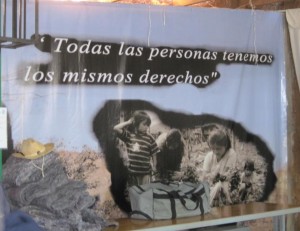

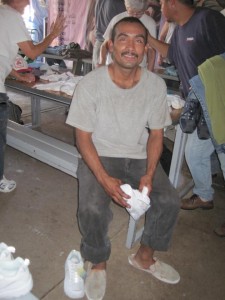
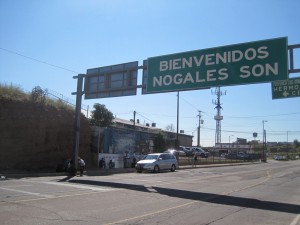
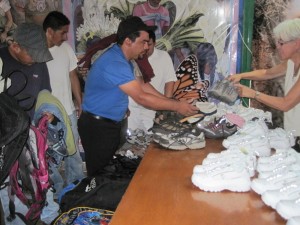
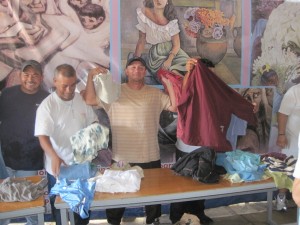


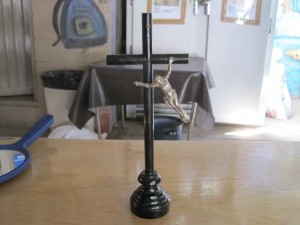
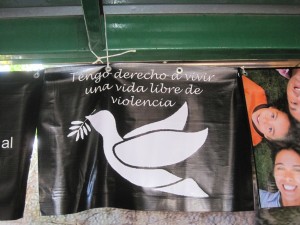


Recent Comments